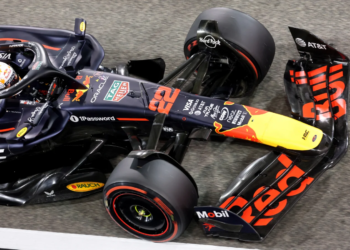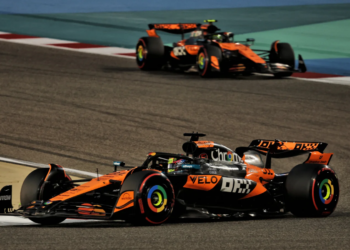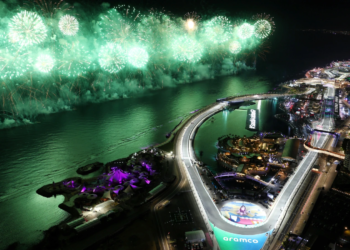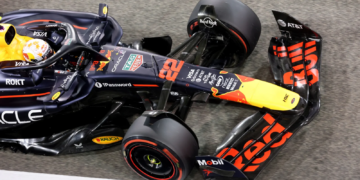Formula 1 is not as ruthless as football’s results-based industry but in manager speak Alpine will have a new face in the dugout for 2021 after Groupe Renault ended Cyril Abiteboul’s five-year tenure.
Renault opted to return to Formula 1 for 2016 in the wake of its relationship with Red Bull turning sour. Renault felt it was underappreciated for its role in the V8 era, when it powered Red Bull to four straight titles, and then received the brunt of the criticism during the early troubles in the V6 phase.
But its takeover of the ailing Lotus team was prolonged and only confirmed in December 2015. By that stage the Lotus outfit had batted away the bailiffs on multiple occasions and had scraped through the latter months of the 2015 campaign, at times being assisted by rival teams, such as when its hospitality unit remained locked in Japan.
Renault installed Abiteboul to front its Formula 1 return, the Frenchman having a long history with the marque, aside from a couple of years at the helm of backmarker team Caterham.
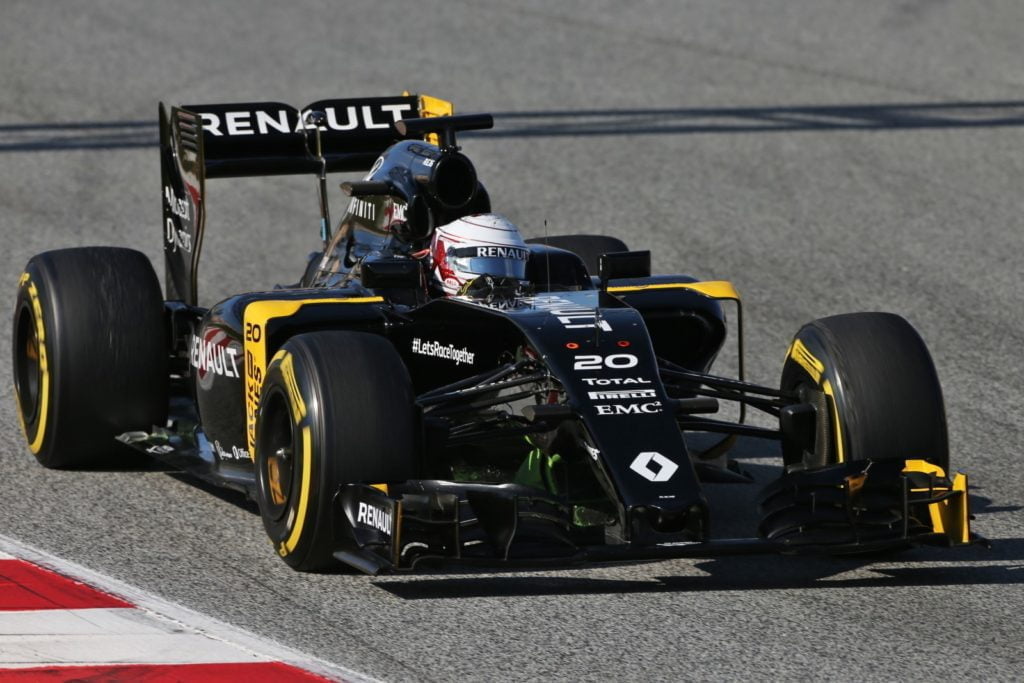
Early expectations were low – and justifiably so, given the shell of an operation it inherited from Lotus. CEO Carlos Ghosn outlined a desire to return to the podium positions by 2018 while cautioning that Red Bull and Mercedes took five years before competing for the title. It had to rebuild from the ground up and do so while marrying two cultures: the chassis department at Enstone and engine factory at Viry-Chatillon.
McLaren refugee Kevin Magnussen was drafted in to replace Pastor Maldonado when the Venezuelan’s oil funding dried up while Jolyon Palmer was promoted from reserve to race driver.
Abiteboul had heavy involvement in the restructured organisation but on-location duties were initially entrusted to Frederic Vasseur, in his first direct Formula 1 role, but he left in early 2017 amid disagreements over the team’s direction.
Renault went through 2016 mired towards the back, classifying ninth with only eight points, while Magnussen left for pastures new at Haas, having been dissatisfied at Renault’s hierarchy. Magnussen rejected a short-term deal and commented that “it was a little bit difficult to know who was actually in charge” and felt affronted at the number of drivers Renault had evaluated.

Nonetheless in 2017 Renault made the most of revised aerodynamic regulations to return to the midfield, particularly in the hands of Nico Hulkenberg, who jumped ship from Force India on a three-year deal. It also enticed Marcin Budkowski to join as Executive Director, a move which irritated rival teams, given his technical role at the FIA. Palmer, in the second car, continued to struggle for performance and as part of the convoluted deal that ended the McLaren-Honda partnership the Red Bull-backed Carlos Sainz was placed on loan at Renault for 2018 – the development of which Palmer first learned about on Autosport’s website. Renault drafted in Sainz for the closing rounds of 2017, contributing to the team moving up to sixth overall, setting the building blocks for a strong 2018 campaign. Hulkenberg and Sainz collaborated to score 122 points, putting Renault fourth in the standings, as best of the rest behind the hybrid era’s dominant trio of teams.
More crucially Renault’s improvements through 2018 proved sufficient to convince Daniel Ricciardo to up sticks from Red Bull and sign a two-year deal. Renault had missed its initial 2018 podium target, on occasion allowing opportunities to slip through its fingers, but buoyed by its fourth place and the acquisition of Renault it entered 2019 aiming for trophies.
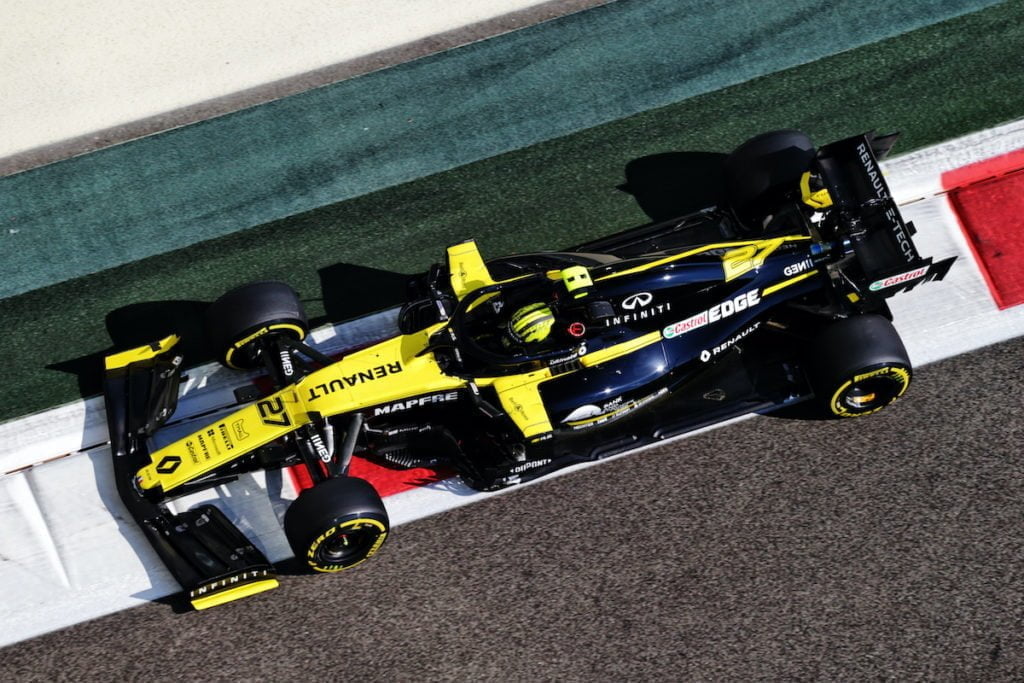
However its upwards trajectory, for the first time, hit a roadblock.
After several years of frustration with its power unit there were clear gains made by the crew at Viry-Chatillon but aerodynamically the R.S.19 was disappointing. The car was quick on low-downforce venues, legitimately challenging for strong positions in Canada and Italy, but elsewhere was firmly entrenched in the midfield – sometimes towards the back of it – as update packages failed to deliver the desired gains. Renault fell to fifth, only narrowly fending off Toro Rosso, and finished adrift of revitalised customer team McLaren. Off-track the entire Formula 1 project was placed in question amid a company-wide assessment while the Ghosn affair plagued Renault, with his successor Thierry Bollore staying only briefly before Clotilde Debois took his spot on an interim basis. The Formula 1 team also acted in the wake of its poor 2019, axing long-term chassis chief Nick Chester, and bringing in former Ferrari and McLaren tech boss Pat Fry, while Dirk de Beer replaced Peter Machin as head of aero.

Renault suffered a further blow when, before a wheel had been turned in the pandemic-delayed 2020 campaign, Ricciardo penned a two-year deal with McLaren. It prompted a prickly response from Abiteboul though Renault’s fortunes soon rose as its interim CEO affirmed the marque’s long-term commitment to Formula 1, Luca de Meo joined as its new CEO, while it pulled off a coup by recruiting Fernando Alonso.
On-track Renault’s 2019 form continued through the early rounds of 2020 but as it better understood the R.S.20, and brought updates that – unlike in 2019 – provided the anticipated results, Renault emerged as a podium contender on a range of tracks. Ricciardo, after coming close at Spa and Mugello, finally got into the top three at the Nurburgring, repeated it at Imola, before new signing Esteban Ocon grabbed second at Sakhir. Reliability issues, particularly on Ocon’s side of the garage, contributed to Renault again only finishing fifth – repeating its 2019 result – but a haul of 181 points was by far its best return.

Abiteboul had been expected to retain involvement in the rebranded Alpine project in some capacity but his exit means a new management set-up will be tasked with bringing the team to the front in Formula 1. Budkowski is expected to take on the team boss role while ex-Suzuki chief Davide Brivio has been linked to a senior role. Impending overhauled technical regulations provide Alpine with a golden opportunity, as do the newly-introduced financial regulations, which were pivotal to Groupe Renault reaffirming its commitment. Nonetheless the likes of Aston Martin and McLaren, along with Ferrari, also regard 2022 as a once-in-a-generation reset, while Red Bull and hybrid era steamroller Mercedes still far up the road.
Abiteboul has left the company – but can the new management use the platform he built to put Alpine atop the pile?




